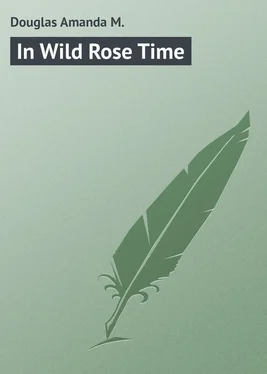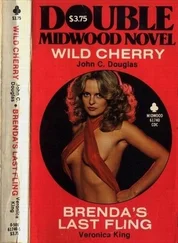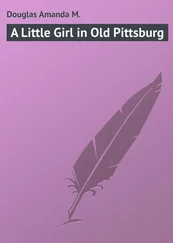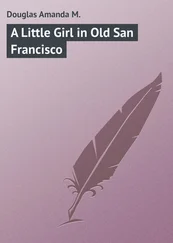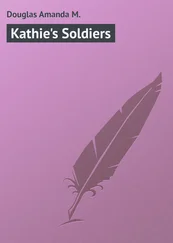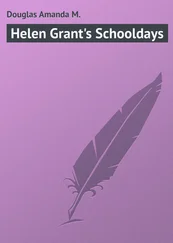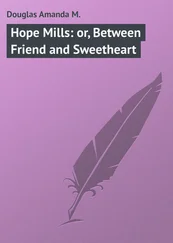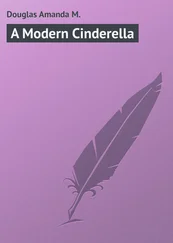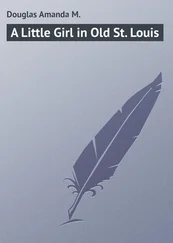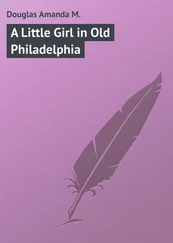Amanda Douglas - In Wild Rose Time
Здесь есть возможность читать онлайн «Amanda Douglas - In Wild Rose Time» — ознакомительный отрывок электронной книги совершенно бесплатно, а после прочтения отрывка купить полную версию. В некоторых случаях можно слушать аудио, скачать через торрент в формате fb2 и присутствует краткое содержание. Жанр: foreign_prose, foreign_children, на английском языке. Описание произведения, (предисловие) а так же отзывы посетителей доступны на портале библиотеки ЛибКат.
- Название:In Wild Rose Time
- Автор:
- Жанр:
- Год:неизвестен
- ISBN:нет данных
- Рейтинг книги:4 / 5. Голосов: 1
-
Избранное:Добавить в избранное
- Отзывы:
-
Ваша оценка:
- 80
- 1
- 2
- 3
- 4
- 5
In Wild Rose Time: краткое содержание, описание и аннотация
Предлагаем к чтению аннотацию, описание, краткое содержание или предисловие (зависит от того, что написал сам автор книги «In Wild Rose Time»). Если вы не нашли необходимую информацию о книге — напишите в комментариях, мы постараемся отыскать её.
In Wild Rose Time — читать онлайн ознакомительный отрывок
Ниже представлен текст книги, разбитый по страницам. Система сохранения места последней прочитанной страницы, позволяет с удобством читать онлайн бесплатно книгу «In Wild Rose Time», без необходимости каждый раз заново искать на чём Вы остановились. Поставьте закладку, и сможете в любой момент перейти на страницу, на которой закончили чтение.
Интервал:
Закладка:
Douglas Amanda M.
In Wild Rose Time
I – A HANDFUL OF ROSES
“Hev a bunch o’ roses, mem? Fresh wild roses with the dew on ’em. Jes’ picked. On’y ten cents.”
They dropped in at the open window, and landed on Virginia Deering’s lap. Her first impulse was to throw them out again, as she half said to herself, “I hate wild roses, I always shall!” But she glanced down into such a forlorn, wistful face, that her heart was touched, a not unkindly heart, though it had been bitter and obdurate with the unreason of youth.
“Oh, please buy ’em, mem. Mammy’s sick and can’t do nothin’, an’ Ben’s got a fever. On’y ten cents.”
The poor child, in her ragged dress, was clean enough. Her face had a starved, eager look, and the earnest pleading in the eyes bespoke necessity seldom counterfeited. Miss Deering opened her pretty silver-clasped purse and handed out a quarter.
“All of it?” hesitatingly. “Oh, thanky, thanky! We’d sold the chickens, and everything we could, and Ben said city folks was fond of wild-flowers.”
The whistle blew. There was a groan and quiver as the train began to move, that drowned the child’s gratitude. Miss Deering laid the roses on the seat beside her with a curious touch, as if she shrank from them. An hour or two ago she had started on her journey, leaving behind her a sweet dream of youth and love and roses. In twenty-four hours the brightness of her life had been swept away. The summer day wore a dulness she had never seen before.
She was a handsome young girl, with a fine complexion, light, silken soft hair, and very dark gray eyes. A modern, stylish girl, who had not yet reached the period when one begins to assert her right supreme over the world and all that therein is.
She peered at the newcomers at the next station. No one wanted the seat, however. The sweet wild roses, in all their shell-like transparency, lay unheeded, drinking up the dewy crystal drops that had been showered by mortal hands, as well as dusky-fingered night. You would have said she had a tender side, that could be keenly moved by beauty. Perhaps that was why she glanced out of the window on the whirling sights. She might have vaguely wondered if she had been so utterly right yesterday – was it yesterday, or a month ago?
She took up her book, but it had lost its interest. The delicate fragrance of the roses disturbed her – stirred a gust of feeling that she had fancied securely laid. If he had cared, he would have come last night; he would have seen her this morning at the station. She had felt so strong, so justified in her own sight, and such a simple thing as a beggar with wild roses had disturbed it all.
There were not many people coming in town. She glanced about – one and another had bunches of flowers, flaunting scarlet geraniums and modern things. Very few people cared for wild roses, unless they were worked in table-scarfs or painted on china. Ah, how the tender little buds crept closer to each other! The pink, shell-like leaves of the mothers drooped tiredly, the soft green huddled about with a kind of frightened tenderness, as if they might be going out in a strange, unfriendly world. She turned her eyes away with a betraying mistiness in them.
They came into the great station, but this was not the hour for crowds. She picked up her satchel, her book – should she leave the roses to the mercy of the sweeper? Something throbbed up in her throat, she gathered them with a desperate grasp, threaded her way through the great enclosure, and passed out into the street amid a babel of voices.
A group of ragged urchins stood eager for a chance to seize a valise or parcel, to the relief or disgust of its owner.
“Who wants some flowers?” bethinking herself suddenly of the flower charities.
They thronged round her. She threw the bunch with a light effort just beyond the first noisy ring. A shock-headed lad with a broad, freckled face and laughing blue eyes caught it. Another snatched at it. Thereupon ensued a scrimmage. Blows and tearing of hair were the courtesies exchanged, until a policeman loomed in sight. The first lad was at this moment the victor, and he plunged down the side street with a fleetness known only to the street arab. The majesty of the law distributed cuffs liberally among the vanquished, and the rabble dispersed.
Miss Deering smiled with a touch of sad scorn, nodded to a cabman, and, as she seated herself, watched the fleet but dirty feet vanishing in the distance, recalling the face.
“It’s curious they, too, should quarrel about wild roses,” she said, just under her breath, sighing softly.
Meanwhile Patsey Muldoon ran some ten or twelve squares, then paused for a bit of breath, mopping his face with his ragged shirt sleeve.
“My, ain’t they queer? not stunners exactly, but splendid, if they ain’t red. I d’know as Dil ever see sich a swad in her life. An’ Bess’s blue eyes’ll be like saucers. Oh, golly! how sweet!” burying his face in them. “Sich as these ain’t layin’ loose round Barker’s Court offen. I’ve lost a job mebbe, an’ Casey’ll crow if he gits one; but that ere left-hander wos science, that wos!” and the boy chuckled as he ran on again.
From the Grand Central over to the East Side tenements was no mean stretch, but Patsey would have gone twice as far to give Dilsey Quinn a pleasure.
The street was built up compactly, and swarmed with children. There was an open way between a row of houses, a flagged space called Barker’s Court; a deep strip of ground that had been a puzzle to its owner, until he hit upon a plan for his model tenement row. The four-story houses faced each other, with pulley-lines between, the clothes shutting out air and light. They were planned for the greatest number, if the greatest good had been omitted. One narrow hall and stairway did for two houses, so not much space was lost. But the sights and sounds, the piles of garbage, the vile air emanating from rooms where dirt reigned supreme, and the steam of the wet clothes, were something terrible on a hot summer day. The poor creatures crowded into it were used to it.
Patsey ran down to the middle of the Court, and then scudded up one flight.
The room was clean, rather cheery looking, with one window, water and drain in the corner, a room at the back, and a very small one at the side over the hall, with a window half the width of the other. A stove stood in the chimney recess, there was an old lounge, a rug of crazy-work carpet in which Dilsey Quinn had sewed together the bits given to her mother.
“Hello, Dil! Ain’t them the daisies? Did ye ever have sich a lot before in yer life? I don’t mean they’re reg’lar daisies – they’re roses of some kind, but blam’d if I ever seen any like ’em afore.”
He tossed them into a baby-wagon, where sat the frailest and whitest wraith one could ever imagine alive. How she lived puzzled everybody. They never took into account Dil’s passionate and inexhaustible love that fought off death with eager, watchful care.
“O Patsey!” Such a joyful cry of surprise. “Was there a flower mission?”
“Flower mission be blowed! Did ye ever see any sich in a mission by the time it gits round here?”
His stubby nose wrinkled disdainfully, and he gave his head an important toss.
“But, oh, where did you get thim?” There was the least bit of a brogue in Dil’s voice, and she always said “thim” in an odd, precise fashion. “There must be a thousand; they’re packed so tight they’ve almost hurted each other. And, oh, how sweet!”
The breath of fragrance seemed to penetrate every pulse in Dil’s sturdy frame.
“I guess ther ain’t mor’n a hundred; but it’s a jolly lot, and they looked so strange and queer like – weakly, like Bess here, an’ I thought of her. A young lady throwed ’em out to me. I s’pose she’d had so many flowers they didn’t count. My, wasn’t she a high-stepper, purty as they make ’em; but her hair couldn’t shine along o’ Bess’s here. None o’ yer horse-car folks, nuther; she went off in a cab. An’ Jim Casey went fer ’em. I knowed she meant ’em fer me; ye kin tell by a person’s eye an’ the nod o’ ther head. But Casey went fer ’em, an’ I give him a punch jes’ back o’ the ear – clear science, an’ the boys made a row. While the cop was a-mendin’ of their bangs I shinned it off good, I tell ye! I’ve run every step from Gran’ Cent’al, an now I must shin off fer my papers. An’ you kids kin have a picnic wid de flowers.”
Читать дальшеИнтервал:
Закладка:
Похожие книги на «In Wild Rose Time»
Представляем Вашему вниманию похожие книги на «In Wild Rose Time» списком для выбора. Мы отобрали схожую по названию и смыслу литературу в надежде предоставить читателям больше вариантов отыскать новые, интересные, ещё непрочитанные произведения.
Обсуждение, отзывы о книге «In Wild Rose Time» и просто собственные мнения читателей. Оставьте ваши комментарии, напишите, что Вы думаете о произведении, его смысле или главных героях. Укажите что конкретно понравилось, а что нет, и почему Вы так считаете.
